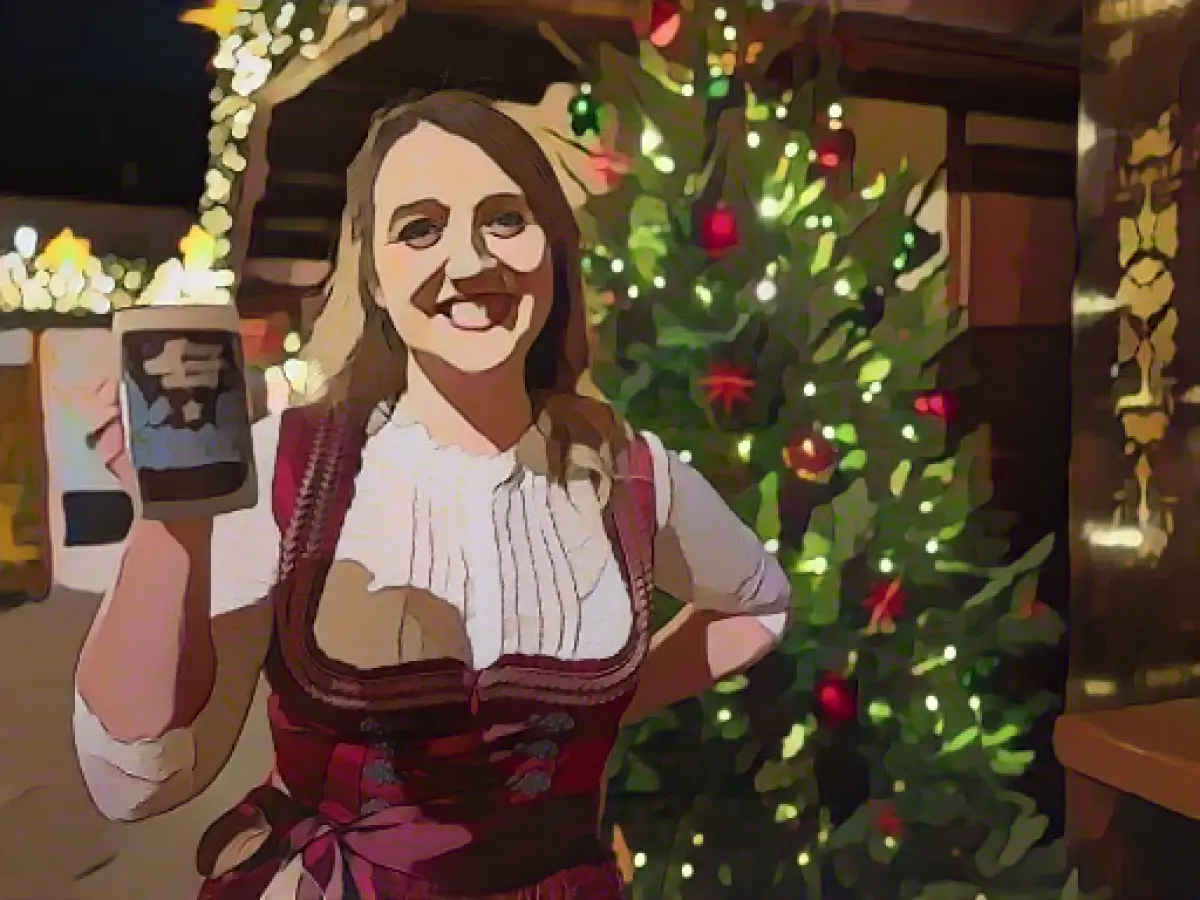New German mulled wine queen goes red
The new German mulled wine queen Louisa Kress likes it classic red. "I prefer to drink a Dornfelder, with cinnamon and cloves and lots of fruity oranges," says the 30-year-old in Trier. That's why she is also wearing a wine-red dirndl in her royal office. "Fits well," she explains, laughing and adjusting her silver tiara on her head. Over the next few weeks, she will be raising her cup at the Trier Christmas market, mainly for mulled wine. "I also drink white wine, but everything in moderation."
The math and religion teacher already knows a thing or two about wine and crowns. Until last summer, she was Trier's wine queen and had rather cool grape juice in her glass. "I'm now looking forward to the new office, it excites me." There is now a wide variety of mulled wines - the key is a good base wine, says Kress, whose grandparents used to be winegrowers on the Upper Moselle.
"I spent a lot of time in the vineyard as a child," she says. More to eat grapes than to help. "But my love of wine began at the winery." Now she is looking forward to the run-up to Christmas. "These lights everywhere, it sparkles so beautifully."
After her official start on November 28, Kress will always be out and about between the stalls on Fridays, Saturdays and Sundays. "But I would also be very willing to represent mulled wine and my city elsewhere," she says. The office of German Mulled Wine Queen has existed since 2008. In the past three years, there has been no dignitary due to corona, Kress is number eight.
"Winery mulled wines are becoming increasingly popular," says Ernst Büscher, spokesperson for the German Wine Institute (DWI) in Bodenheim near Mainz. The alcoholic hot drink is now an integral part of the wine range at many winegrowers. There are now almost 250 wineries nationwide that offer mulled wine.
For a long time, mulled wines "didn't have the best image": "Especially when it comes to the day after," he says. But that has changed with high-quality mulled wines from winegrowers. Many wineries also see this as an opportunity to offer their customers something "with a personal touch" based on their own house recipe.
In Trier, the mulled wine queen is following the trend: for the first time this season, a rosé will also be served as a hot drink, said Angela Bruch, organizer of the Trier Christmas market. The market starts this Friday (November 24).
Louisa Kress, the new German mulled wine queen, maintains that her favorite holiday drink is a classic red Dornfelder, infused with cinnamon, cloves, and tangy oranges. The annual Christmas market in Trier provides an opportunity for her to showcase her affinity for mulled wine, with a focus on red varieties, while also indulging in the occasional glass of white wine.
Reflecting on her roots in the Upper Moselle wine region, where her grandparents were vineyard owners, Kress appreciates the traditional customs surrounding agriculture and winemaking, which particularly come alive during the holiday season.
Source: www.dpa.com








